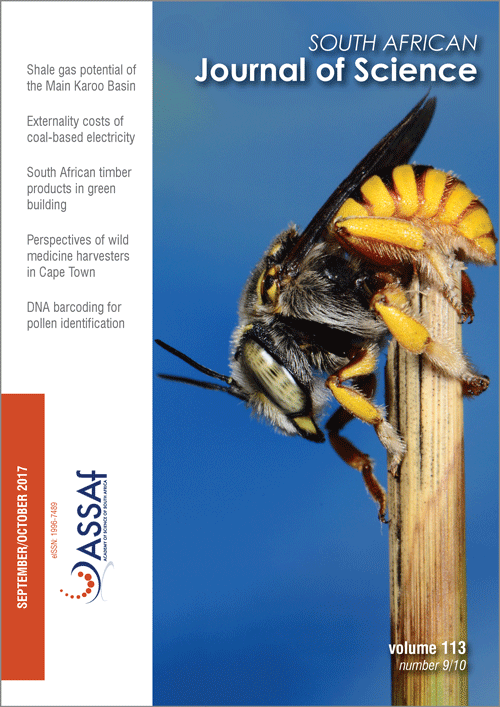Resilience processes in sexually abused adolescent girls: A scoping review of the literature
DOI:
https://doi.org/10.17159/sajs.2017/20160318Keywords:
resilience-enabling factors, child sexual abuse, teenage girls, supportive ecologies, positive adaptationAbstract
Childhood sexual abuse is often associated with a number of deleterious psychological and behavioural outcomes for survivors. However, some research suggests that this impact is variable and that some survivors adapt positively. An ability to adapt positively to adversity, under any circumstances, has been termed resilience. Drawing on a socio-ecological understanding of resilience, the aim of this scoping review was to comprehensively map existing empirical studies on resilience processes in sexually abused adolescent girls and to summarise emerging resilience-enabling factors. We also considered the implications of the findings for practice and research. A total of 11 articles met the criteria for inclusion in the review. Findings from these studies suggest that internal factors (meaning making, optimistic future orientation, agency and mastery) and contextual factors (supportive family, social and educational environments) function interdependently to enable resilience in sexually abused adolescent girls. Practitioners should leverage these complementary and interdependent resilience-enabling mechanisms by encouraging greater involvement of girls in the planning of interventions and by assisting girls in developing meaningful narratives about their abuse experiences. Interventions should also encourage greater involvement from supportive structures, while challenging social and cultural norms that inhibit resilience. Resilience researchers should be cognisant of the paucity of research focusing on resilience processes in sexually abused adolescent girls as well as the absence of innovative, participatory methods of data collection.
Significance:- The review adds to a body of literature on resilience processes with implications for resilience researchers.
- The findings have implications for a range of practitioners (psychologists, social workers, teachers etc.) who work with sexually abused girls.
Downloads
Published
Issue
Section
License

All articles are published under a Creative Commons Attribution 4.0 International Licence
Copyright is retained by the authors. Readers are welcome to reproduce, share and adapt the content without permission provided the source is attributed.
Disclaimer: The publisher and editors accept no responsibility for statements made by the authors
How to Cite
- Abstract 1297
- PDF 1265
- EPUB 211
- XML 236
- Supplementary file 263













.png)